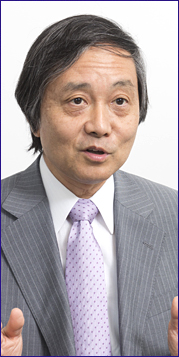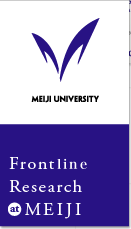

Proposing a New Tokyo for the Next Generation
In 2008, I began an analysis of cities through a ranking of "cities' overall global strength" based on a total of 69 proprietary indicators, and I am presenting this research in English to the world on behalf of one of the top-four-ranking metropolises. As the power of Asia's major cities begins to grow, I am envisioning scenarios for the future of the city while trying to conceive of a Tokyo for the next generation.The Japanese government began the Comprehensive National Development Plan in 1962, whose most important theme was balanced development throughout the country. However, this system has already suffered from structural fatigue, and overconcentration of development in the Tokyo area continues to increase. While facing the reality that the fruits of Tokyo's labors are supporting the development of Japan, I feel it is both necessary and urgent to think of a strategy to help Tokyo win the competition between cities.
Crisis Management from the Standpoint of Social Science
Aside from this, I am also researching urban and regional crisis management policy. Japan is a country faced by a large number of natural disasters: this is an issue I approach not from an engineering standpoint, but instead with consideration of how people should respond when a disaster occurs. My research looks into what type of leadership is needed to prevent disasters, based on a social science perspective.While serving as the dean of the Meiji University Professional Graduate School, I also lecture in the Graduate School of Public Policy's Governance Studies program, which is unique because of the large number of students who are also active adult members of society—it is a gathering of individuals who want to give serious thought to what they ought to be doing in today's confusing society. Some of the classes are even conducted in English.
Cultivating Human Resources Capable of Formulating Policies
Our faculty includes active politicians, public employees and other such members of society, because rather than focusing only on filling students' head with knowledge, we aim to cultivate human resources capable of formulating actual policies. Young government bureaucrats from developing countries even take part in the English-language courses. I believe that it is one of the duties of the graduate school to not simply make students aware of the problems of society, but to help them consider what can be done to solve such problems and create policies to achieve these ends.Profile
Dean of the Meiji University Professional Graduate School, dean of the Graduate School of Governance Studies, Graduate School of Political Science and Economics, professorIchikawa graduated from the Department of Architecture, Waseda University, completed a Ph.D. at the same university, and then completed his Ph.D. in urban and regional planning at Canada's University of Waterloo (a major influence in city planning) as an exchange student supported by the Canadian government. He is a first-class registered architect and an interdisciplinary field practitioner in charge of Political Science Department lectures. He also serves as head of the Meiji University Research Center for Crisis and Contingency Management.









